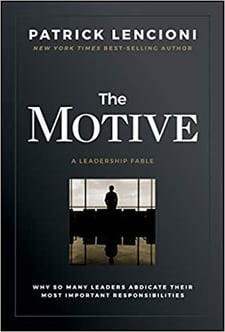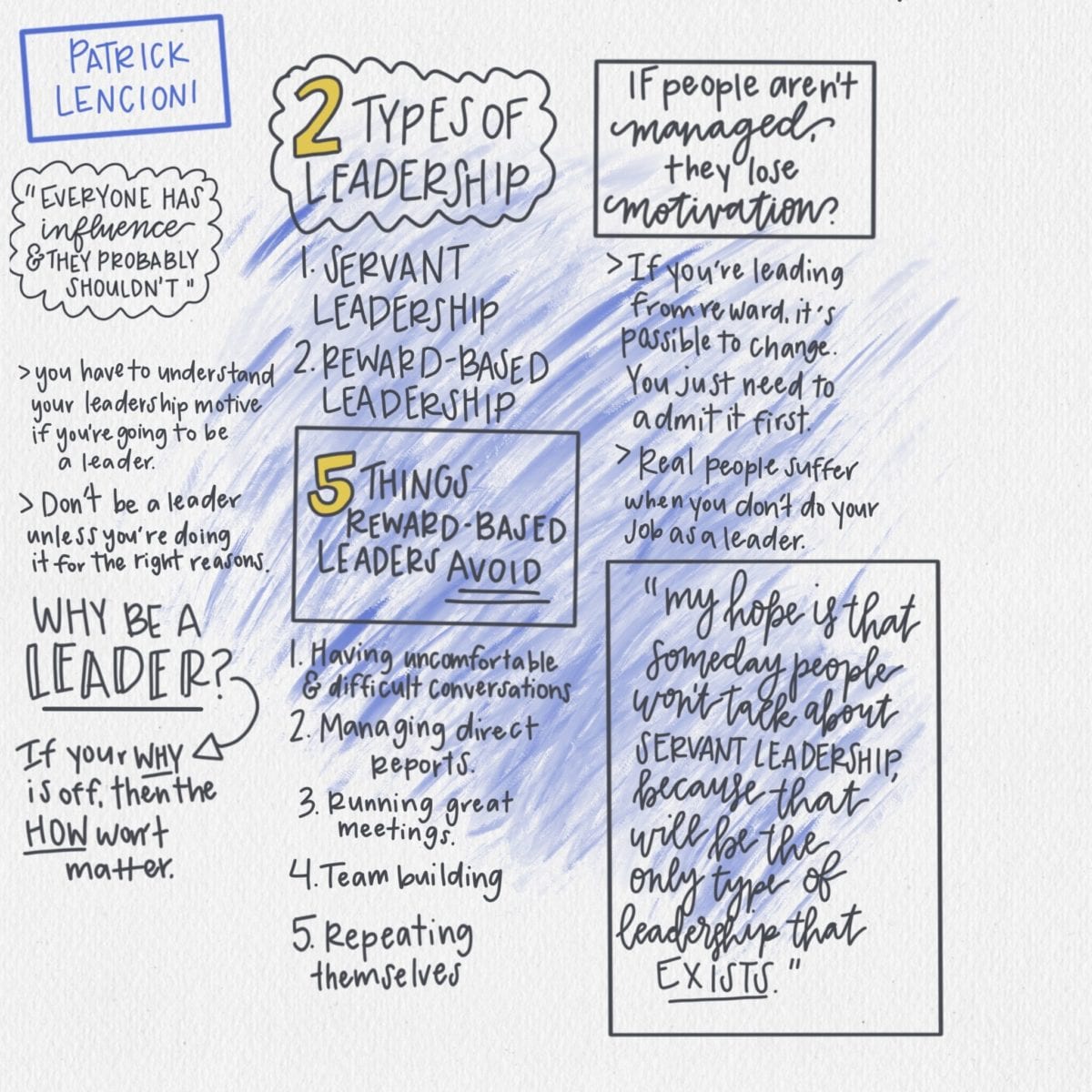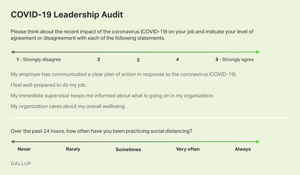 Patrick Lencioni’s, feels he should have written his new book, The Motive, first. He almost decided not to write it because one of the leaders he admires most, Alan Mullaly, disagreed with him on leadership involves suffering.
Patrick Lencioni’s, feels he should have written his new book, The Motive, first. He almost decided not to write it because one of the leaders he admires most, Alan Mullaly, disagreed with him on leadership involves suffering.
I’ve not always been a big fan of Lencioni’s fables, yet admire his ideas, methods, and tools. One of my customers achieved a significant breakthrough in their leadership team after I facilitated the Five Dysfunctions of a Team exercise.
If you’re a leader this book is for you. You may not need to read if you’re already the type of leader Lencioni describes, or if you’re not the type of leader he recommends, then you may not understand or absorb why this is critical for leadership.
Due to Coronavirus, this motivation for leadership been never been more important. Any leader motivated by reward-centered leadership is probably having significant challenges dealing with this crisis. Let’s explain the two types of leadership motivation.
LEADERSHIP MOTIVATION
Lencioni states, “… over the course of my career I’ve come to realize that some leaders fail to achieve organizational health because they possess an almost unconscious unwillingness to do the difficult tasks and confront the challenging situations that are required to bring it about. This unwillingness flows from a flawed—and dangerous—motivation for becoming a leader.”
Lencioni believes two motives drive people to become leaders.
- Reward-centered leadership: the belief that being a leader is the reward for hard work; therefore, the experience of being a leader should be pleasant and enjoyable, free to choose what they work on and avoid anything mundane, unpleasant, or uncomfortable.
- Responsibility-centered leadership: the belief that being a leader is a responsibility; therefore, the experience of leading should be difficult and challenging (though certainly not without elements of personal gratification).
 The reward-centered leader calculates the personal economics of uncomfortable and tedious responsibilities—responsibilities only a leader can do—and tries to avoid them. This leaves the people they lead without direction, guidance, and protection. This hurts those people and the organization. Employees express their disbelief as to how their leader could have been so negligent and irresponsible, yet it makes perfect sense considering his or her motive for becoming a leader.
The reward-centered leader calculates the personal economics of uncomfortable and tedious responsibilities—responsibilities only a leader can do—and tries to avoid them. This leaves the people they lead without direction, guidance, and protection. This hurts those people and the organization. Employees express their disbelief as to how their leader could have been so negligent and irresponsible, yet it makes perfect sense considering his or her motive for becoming a leader.
It’s like a father, Lencioni shares, who maintains the belief being a parent is convenient and fun. He has a hard time embracing the concept of spending a lot of time with his children or attending their activities. As long as he maintains the belief dads shouldn’t have to frequently sacrifice their own interests for the needs of their kids, the most you can expect from him is begrudging compliance when it comes to an occasional game of Chutes and Ladders or a trip to Chuck E. Cheese. He’ll not want to change dirty diapers or help with algebra homework either.
Only by shifting his underlying attitude about what it means to be a parent can this dad become a good one.
When it comes to leading an organization, reward-centered leaders operate under a similar assumption: their role should be convenient and enjoyable. They delegate, abdicate, or ignore situations only the leader can address, leaving a painful and destructive vacuum.
The biggest problem? They don’t understand the flawed nature of their motive for leadership. Many even take pride in it!
Lencioni believes it’s time to expose reward-centered leadership for what it is and help leaders overcome it, for their own good and the good of the people and organizations they are supposed to be serving.
The Five Omissions of Reward-Centered Leaders
 What follows are the five situations or responsibilities that reward-centered leaders delegate, abdicate, or avoid altogether, which cause the greatest problems for the people they lead. The omission of one or all these areas may be an indication of an improper motive for leading.
What follows are the five situations or responsibilities that reward-centered leaders delegate, abdicate, or avoid altogether, which cause the greatest problems for the people they lead. The omission of one or all these areas may be an indication of an improper motive for leading.
How many of these do you avoid, or fail to recognize as your leadership responsibilities?
- Developing the Leadership Team Too many leaders still believe teamwork is a soft pursuit, less important than more technical matters like finance or strategy or marketing.
- Managing Subordinates (and Making Them Manage Theirs) Managing individuals is helping set the general direction of their work, ensuring it aligns with and is understood by their peers. It’s staying informed enough to identify potential obstacles and problems as early as possible. It is coaching leaders to improve themselves behaviorally to make it more likely they will succeed.
- Having Difficult and Uncomfortable Conversations One of the main responsibilities of a leader is to confront difficult, awkward issues quickly and with clarity, charity, and resolve.
- Running Great Team Meetings In many organizations the people responsible for making meetings better—more effective and less boring—often complain about them the most! The best place to observe a leader —a meeting.
- Communicating Constantly and Repetitively to Employees It is an emotional and behavioral process to ensure people are aligned with and bought into what is going on: where they fit into the success of the enterprise, more than a transactional and informational one. And it requires real, repetitive, tedious work from a leader.
Growth demands Strategic Discipline.
-2.jpg?width=300&name=3%20Disciplines%20of%20Execution%20(Strategic%20Discipline)-2.jpg) To build an enduring great organization, requires disciplined people, disciplined thought, disciplined action, to produce superior results, and make a distinctive impact in the world.
To build an enduring great organization, requires disciplined people, disciplined thought, disciplined action, to produce superior results, and make a distinctive impact in the world.
Discipline sustains momentum, over a long period of time, laying the foundations for lasting endurance.
A winning habit starts with 3 Strategic Disciplines: Priority, Metrics and Meeting Rhythms. Forecasting, accountability, individual, and team performance improve dramatically.
Meeting Rhythms achieve a disciplined focus on performance metrics to drive growth.
Let Positioning Systems help your business achieve these outcomes on the Four most Important Decisions your business faces:
|
DECISION |
RESULT/OUTCOME |
|
PEOPLE |
|
|
STRATEGY |
|
|
EXECUTION |
|
|
CASH |
|
Positioning Systems helps mid-sized ($5M - $250M) business Scale-UP. We align your business to focus on Your One Thing! Contact dwick@positioningsystems.com to Scale Up your business! Take our Four Decisions Needs Assessment to discover how your business measures against other Scaled Up companies. We’ll contact you.
 NEXT BLOG – What Employees Need from Leaders During a Crisis
NEXT BLOG – What Employees Need from Leaders During a Crisis
Gallup provided a webinar on Employee Needs last week. What the top three employee needs are during this crisis, next blog.






.jpeg?width=150&height=135&name=Hand%20with%20marker%20writing%20the%20question%20Whats%20Next_%20(1).jpeg)

